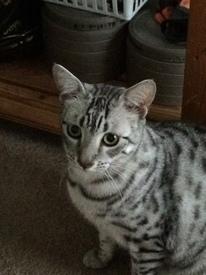If it feels more intense, is it really?

doomspark
Posts: 228 Member
Obviously, walking for the same amount of time at a faster pace burns more calories - but what about walking the same DISTANCE at a faster pace? In other words, if I walk a mile and then run a mile, does the running burn more calories than walking?
Do you burn more calories if you walk a mile in 100 degrees in the sun versus walking a mile in an airconditioned interior hall?
If I walk half a mile from the mall to the car carrying ten pounds of "stuff" that my wife buys, do I burn more calories than if I'm empty-handed?
Do you burn more calories if you walk a mile in 100 degrees in the sun versus walking a mile in an airconditioned interior hall?
If I walk half a mile from the mall to the car carrying ten pounds of "stuff" that my wife buys, do I burn more calories than if I'm empty-handed?
0
Replies
-
Not sure about if you'd burn more calories walking in heat vs A/C, but the other two examples - most definitely.
Running a mile will definitely burn more calories than walking a mile. You are exerting a lot more effort and thus burning more calories.
And walking/hiking/riding/running with a load vs. with nothing definitely burns more. When we were recently on vacation, I took the same 15 mile bike ride two mornings in a row. The first morning, it was just me and my bike. The second morning, I was towing a carrier with two kids (combined weight of approx 75 lbs). Per my HRM, I burned about 35% more calories when towing them.0 -
I have been asking myself the same question, I started walking forty five minutes on my treadmill at 3.0 mph pace, to be honest with you I felt like I really didn't burn anything. I am trying to lose 40 lbs, I started walking my daughter to school and pushing my baby on a jogging stroller for two hours and let me tell you I feel the burn I sweat so much more? I guess I feel like I work harder due to the way the streets incline uphill and the temperature of the outdoors, I feel beat but happy when I get home but I really do not know if it is going to help me more than working out on my treadmill indoors? Does anyone know anything about the difference between the two?0
-
I read here once that one of the biggest differences with a treadmill is whether or not you hold onto it. If you do, you burn far fewer calories.0
-
Obviously, walking for the same amount of time at a faster pace burns more calories - but what about walking the same DISTANCE at a faster pace? In other words, if I walk a mile and then run a mile, does the running burn more calories than walking?
No. The amount of calories you burn walking a mile is relatively the same amount of calories you burn running a mile. Running just gets you to finish the mile quicker, which makes it a more effective way of burning 100 calories running a 10 minute mile versus walking that same mile in 20 minutes.0 -
^^ false to the above of me. Here is why. Your body has different energy systems to produce ATP which in turn makes the muscles do work. When you're doing nothing or just in general moving around, like walking, your body is using your fatty acid energy system to power the muscles. Is very efficient and uses few calories per unit work. If you up the intensity, the work load is to much for this system alone so the cardio system starts putting in work. It's not as efficient, and uses more calories per unit work. Keep pushing yourself up and the more the cardio system does work and the less the fatty acid system does. Eventually push hard enough and you start to hit the lactic acid threshold. This brings the lactic acid energy system into play. It burns far more calories per unit work then the other two systems.
So to answer your question, if the harder you run causes less efficient energy systems to be more utalized, then the more calories you burn per mile.0 -
AccioHotBod is correct. Phjorg1 is wrong. You do burn more calories per minute running (as OP acknowledged), but per mile the calorie burn is about the same. However, the calories burned will come from different sources during aerobic exercise (walking or leisurely jogging) vs. anaerobic (running). Your body burns the greatest percentage of calories from fat at 60-70% of your maximum heart rate (85% cals from fat). While this lower level of intensity takes longer to burn as many calories, it is easier to maintain and burns more fat. During intense running, which puts your HR at 80% or more of your max, 85% of your calories burned will be from carbohydrates, and it is extremely difficult and dangerous to keep up this level of intensity long enough to burn much fat. But again, in sheer number of calories expended, running and walking burn about the same number per mile.0
-
Oh, and heat makes no difference. I used to practice hot yoga and it burns about the same cals as the same yoga poses with a/c!0
-
Based on my knowledge of anatomy and my (admittedly unscientific) personal experiments, AccioHotBod is correct. I tend to burn the same amount over the same course regardless of how hard I run (based on HRM readings).0
-
Obviously, walking for the same amount of time at a faster pace burns more calories - but what about walking the same DISTANCE at a faster pace? In other words, if I walk a mile and then run a mile, does the running burn more calories than walking?
No. The amount of calories you burn walking a mile is relatively the same amount of calories you burn running a mile. Running just gets you to finish the mile quicker, which makes it a more effective way of burning 100 calories running a 10 minute mile versus walking that same mile in 20 minutes.
Very NOT true. running a mile will burn vastly more calories than walking a mile.0 -
Carrying more load increases calorie burn, can't say about heat. I would guess that moving faster does burn more calories provided you sustain duration, rather than distance.0
-
Running 6 mph (10 m/m) will burn approx. 25% more calories than walking 3.5 mph for the same distance.0
-
Obviously, walking for the same amount of time at a faster pace burns more calories - but what about walking the same DISTANCE at a faster pace? In other words, if I walk a mile and then run a mile, does the running burn more calories than walking?
Running a mile will burn about 40% more calories than walking a mile. This is because the biomechanics of running have you fighting gravity more than the biomechanics of walking. If we restrict it to walking, the differences between walking speeds are pretty small, on the order of 10%.
Note that if you're talking about *net* calories, the difference between walking and running can become quite large (running can be roughly 2x the net calories of walking).Do you burn more calories if you walk a mile in 100 degrees in the sun versus walking a mile in an airconditioned interior hall?
Not a meaningful difference, calorie wise.If I walk half a mile from the mall to the car carrying ten pounds of "stuff" that my wife buys, do I burn more calories than if I'm empty-handed?
Yes. But 10 pounds is an inconsequential amount, unless you are very very small. Up it to 50 pounds, and stretch the distance to a few miles, and yeah, the extra weight will start adding up.0 -
I read here once that one of the biggest differences with a treadmill is whether or not you hold onto it. If you do, you burn far fewer calories.
I don't know if that's true, but I believe it... I don't think Im really running if I hold on.0 -
Running will burn a bit more during the mile than walking, but the real difference comes AFTER you've completed that mile. The after-burn of higher intensity cardio is where the real calorie-burning advantage comes into play. After you've finished walking a mile, your burn quickly returns to normal. Not so after running the same mile.
Google 'EPOC'. Excess post-exercise oxygen consumption (EPOC, informally called afterburn)0
This discussion has been closed.
Categories
- All Categories
- 1.4M Health, Wellness and Goals
- 398.1K Introduce Yourself
- 44.7K Getting Started
- 261K Health and Weight Loss
- 176.4K Food and Nutrition
- 47.7K Recipes
- 233K Fitness and Exercise
- 462 Sleep, Mindfulness and Overall Wellness
- 6.5K Goal: Maintaining Weight
- 8.7K Goal: Gaining Weight and Body Building
- 153.5K Motivation and Support
- 8.4K Challenges
- 1.4K Debate Club
- 96.5K Chit-Chat
- 2.6K Fun and Games
- 4.8K MyFitnessPal Information
- 12 News and Announcements
- 21 MyFitnessPal Academy
- 1.5K Feature Suggestions and Ideas
- 3.2K MyFitnessPal Tech Support Questions










